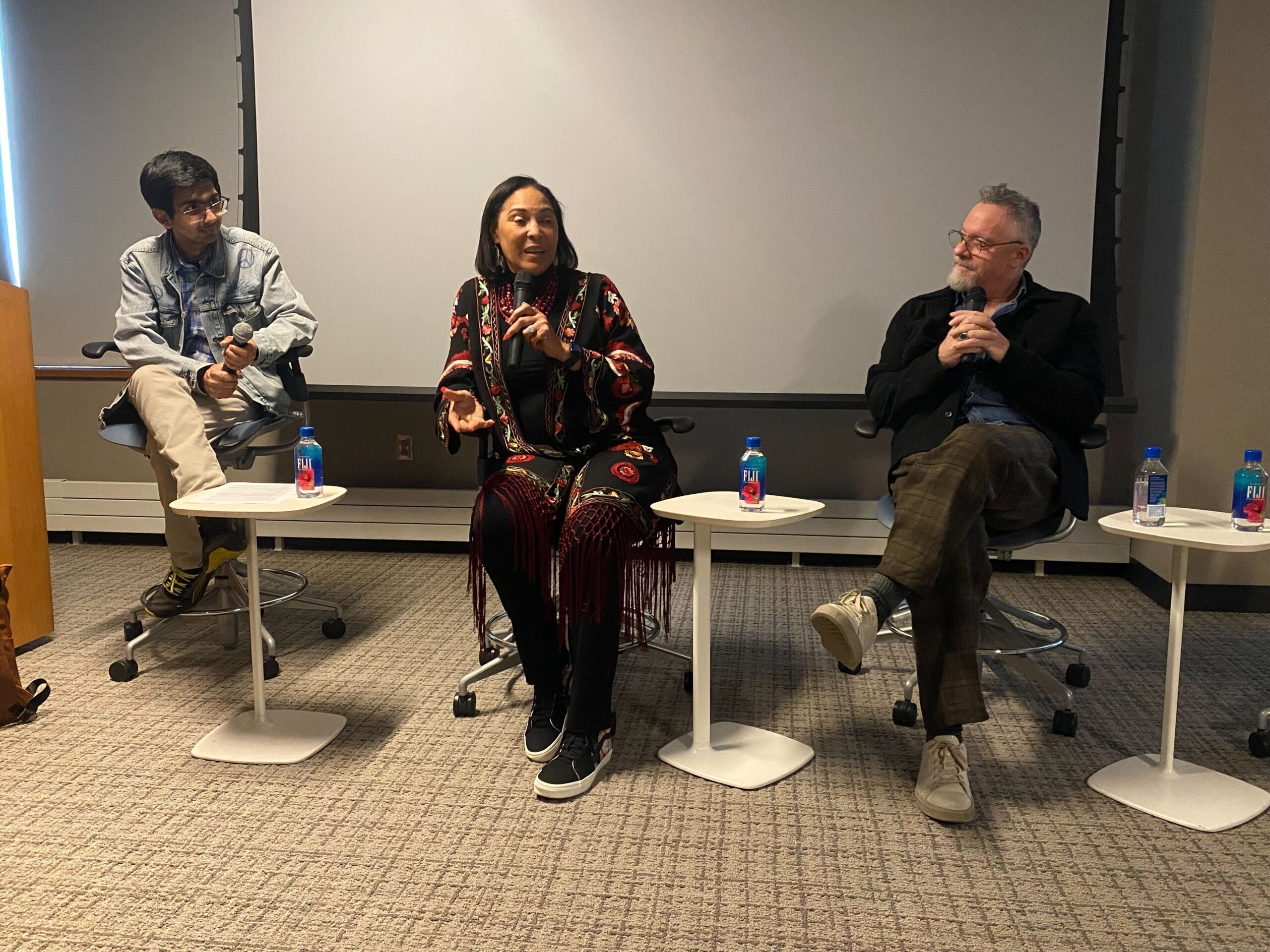Behind the Scenes: Dialogue on Democracy

A special pre-release screening of the documentary War Games: Six Hours to Save Democracy and a following panel discussion featuring film participants took place on April 23, 2024. The talk was moderated by Faizaan Firoz, one of the Dean’s Ambassadors for the Pardee School, and the event provided valuable insights into the filmmaking process and complex problem-solving strategies.
The panel consisted of Tony Gerber, Director and Maj. Gen. (Ret.) Linda Singh, Maryland National Guard Chief. Below, read the highlights of their panel discussion:
Q1: How can the media balance between informing the public about national security issues without sensationalizing?
Gerber: Story as a power is limitless in capacity to move the public and, sometimes, the public needs to be moved to alarm. I believe we may be at such a moment. Media that generates fear by itself is not constructive, but fear that can be converted into action, if channeled, can be powerful.
I also think there’s a lot of hope in the documentary, aside from potentially negative emotions. I believe that the film makes it clear that the issues we face as a nation are not partisan challenges, but rather about our contract with the state that we call democracy. The film emphasizes the necessity of defending our democracy.
Q2: What are the most pressing challenges to democracy in today’s world?
Singh: Depending on where your perspective, the answer could be different. In recent conversations with other military leaders, we have discussed our concerns about our younger generation. I find the this generation may be at severe risk because they want to create change, but prior generations before have not given good examples on how to have their voices heard.
I also think that, as Americans, we don’t listen enough and need to listen more. We have lost the ability to listen, come together, and problem-solve. We need to be more understanding of others’ perspectives to move the conversation forward and, hopefully, turn that into action.
Q3: How do you hope the documentary will contribute to public understanding and awareness?
Gerber: The film generates conversation; it presents the idea that we are at war in our own country and need to win heart and minds at home. This film demonstrates the necessity of folks coming together to work together. If the film sparks conversation on a grand scale, I hope that it can be used for a perceptional shift in preparing for the future.
Q4: How can civilians contribute to safeguarding democracy, especially in the age of online attacks on democracy?
Singh: We have more access to information than we’ve ever had previously, but it’s not all valid or credible. I believe the best strategy to combatting misinformation is to ask more questions and be inquisitive about sources and ideology. Beyond healthy skepticism, I think individuals should do broader research. Seek out data and information from from a diverse group of viewpoints.
Civilians also need to frequently participate in their democracy. We have a power to vote that we all just assume, rather than appreciating it as one of our rights. I call on civilians to vote more in local elections and learn more about your local leaders.
Q5: What are some optimistic signs you’ve seen for the future of democracy?
Gerber: I find the recent activism of college students to be hopeful and encouraging, in that the younger generation is displaying an extraordinary sense of activism.
Singh: If the older generation leaves and props up the younger generation, I believe that they accomplish anything. As a former general, I’ve built teams of young people, people who are only 18-19 years old, who go overseas and does amazing things.
In my current capacity, I oversee a multigeneration workforce. When I listen to how individuals from many different generations and viewpoints all come together, that gives me hope for the future.
Audience members asked questions about challenges during filmmaking, the balance between quality solutions and expediency, recognizing the enemy in a war game and more.
You can learn more about War Games: Six Hours to Save Democracy on its official website.